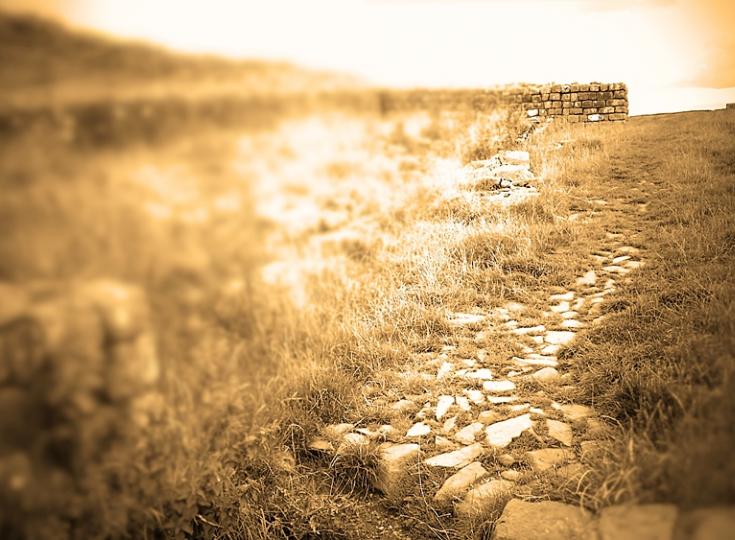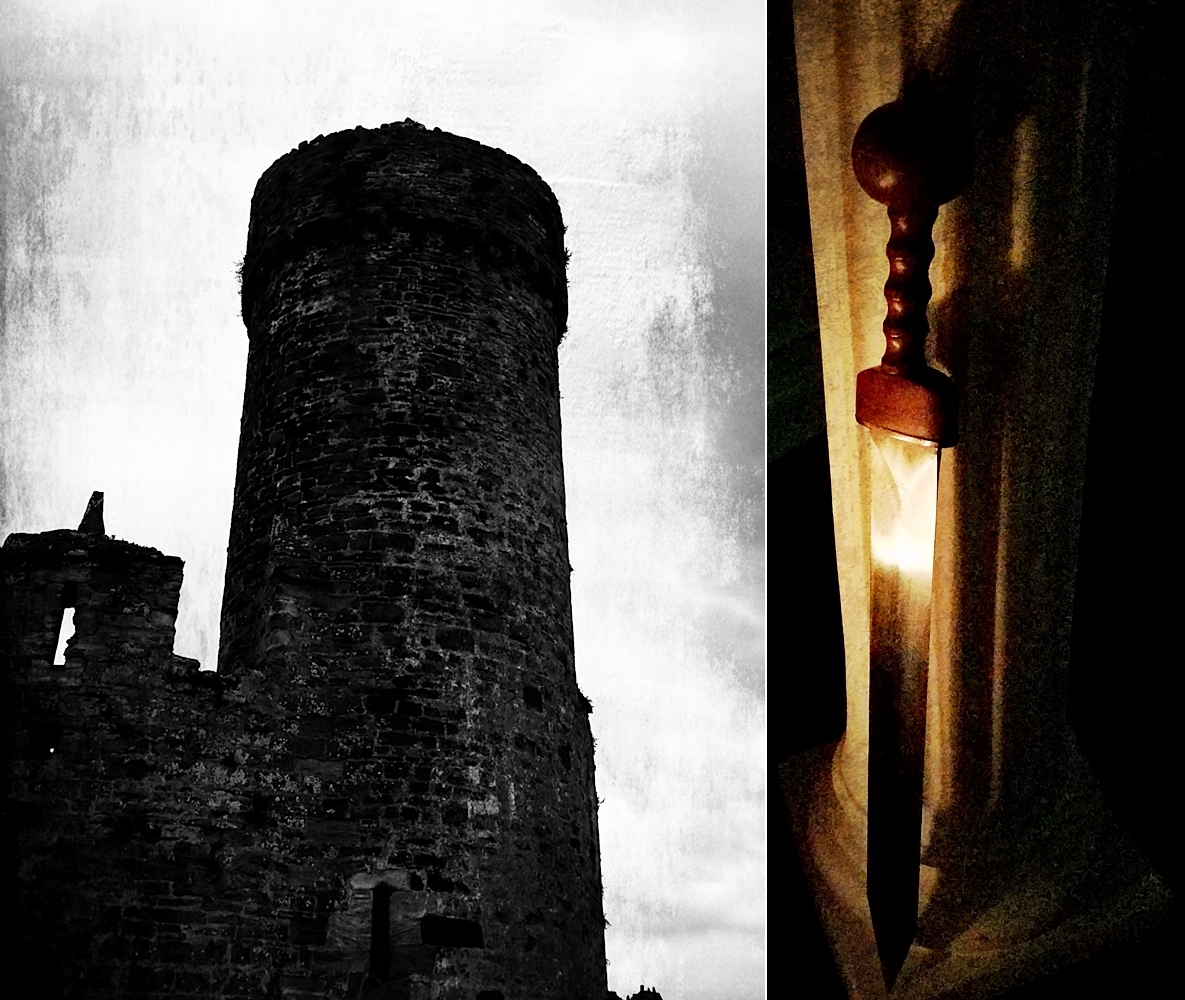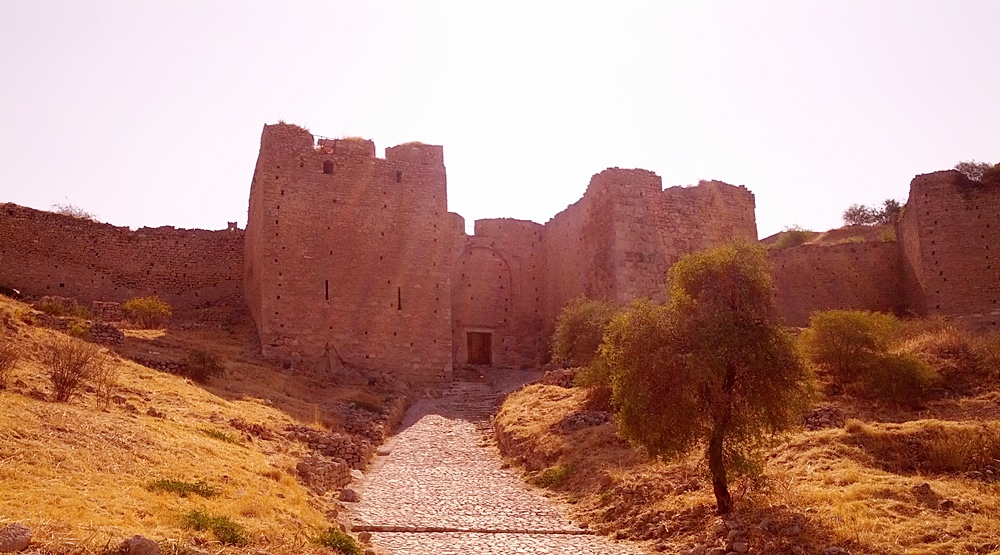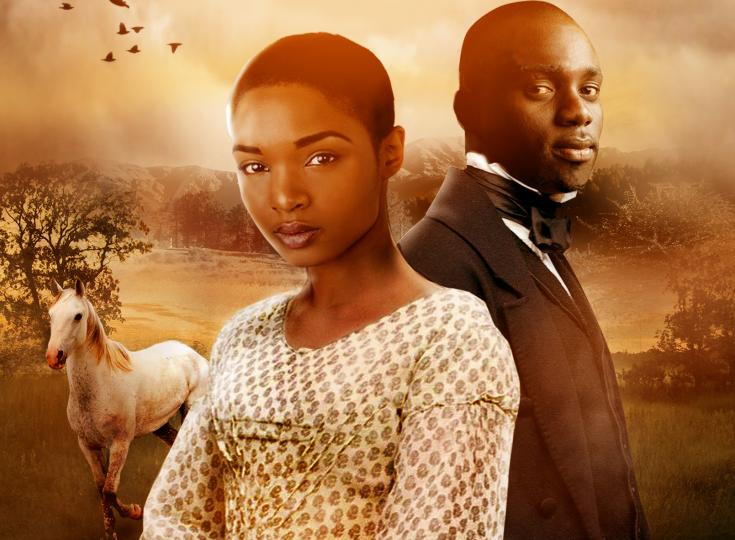E.M. Thomas - Fantasy With a Roman Twist

Always fascinated with empires and what makes them tick, E.M. Thomas decided to write his own, Game of Thrones-style epic fantasy, but then inspired by the Roman Empire. His love for history and visit to Corinth only fueled this fire, making his scenes descriptive and characters very believable. As our author of the day, Thomas talks about the freedom an author gets when writing fantasy, how much research went into The Bulls of War and how he would like to have a chat with Julius Caesar.
Please give us a short introduction to The Bulls of War
At its heart, The Bulls of War is a story of friendship in a land that’s descending into war. The friends in question share history but are polar opposites of one another – one an idealist in a world that’s not that good; the other a pessimist in a world that’s not that bad – and indeed, they gravitate towards opposite poles in the strife that comes, willingly or otherwise. Though fantasy, it’s in many ways an homage to Ancient Rome, one of my favorite eras of antiquity; comparatively, it’s similar in tone to George R.R. Martin’s Song of Ice and Fire series – so in a sentence, Bulls is Game of Thrones with an Imperial Roman twist.
Why fantasy? What fascinates you about the genre?
The freedom. Having written both fantasy and historical fiction (and loving the process for both), the freedom that writing fantasy allows is by far my favorite aspect. For example, there are countless instances of heroism and epic last stands and forbidden romances and so on throughout history, but in my mind, it requires a staggering amount of research before an author can even put pen to paper. It has to be accurate, or at least as accurate as the historical record provides. With fantasy, however, an author can take the real tales or locations or people that inspired him or her and craft something unique without the pressure of misrepresenting a detail about a time period.
What inspired you to write The Bulls of War?
It’s hard to say now. There wasn’t some “aha!” moment where I decided to put pen to paper on Bulls; in truth, it’s the end result of a seed planted years ago. The inklings of the story go back to my early teenage years, some two decades prior. All told, it was probably a confluence of contemporary inspirations – a passion for writing, a love of history (especially military), the revival of the historical and fantasy epic in filmmaking (Glory, Last of the Mohicans, Braveheart, Rob Roy, Gladiator, Troy, Lord of the Rings), and maybe even some video games (the Civilization and Total War series). I love big stories, big stakes, big battles – so fantasy seemed like a natural fit, where things can be as big as you want them to be.
Why did you put two friends in opposite factions?
I thought it would be interesting to see how two characters of similar stock and background could react so differently to similar stimuli. For instance, they are both generals, both near the same age, both come from what qualifies as nobility, and both experience a terrible tragedy in their youth – the book is in large measure a character study, following their evolution from that original point of trauma all the way through the Empire’s growing divide that foreshadows civil war.
Even though this is a fantasy, The Bulls of War feels like it was well-researched. How much research went into creating this epic?
A lot – certainly more than I expected. The challenge with fantasy is first setting up the rules of the world, then staying faithful to them. But even so, practicalities remain like size, distance, speed of travel, etc., which unless the story is taking place on a foreign type of planet, should follow to some extent what would be realistic on Earth. Given that this series is inspired by Imperial Rome, I did a substantial amount of research on time and distances back then, as well as their capabilities in military and technological endeavors. The beauty of fantasy, of course, is that we’re not strictly bound by the limitations of any given time, so I took liberties with certain aspects when I felt like it was needed.

Empires, why and how they are established is a prominent theme in your book. Why do you find empires so interesting?
I think the appeal is two-fold, as empires generally tended to rise throughout history in one of two ways: (i) by the strength of will of a single transcendent person/leader/ruler/family (e.g. Alexander the Great, Ghengis Khan, Napoleon) or (ii) through a state’s gradual absorption and piecemeal conquests over time (e.g. ancient Rome). Both situations are interesting, but what drives my fascination with Rome in the latter case is the sheer duration for what they accomplished. For a period of arguably 500-600 years, they were the top power and influence over an expanse that stretched 1.7 million square miles and tens of millions of people, all accomplished at the point of a sword – no electronics, no guns, no cameras, no phones. To put it in perspective using the modern day, a leading country in the year 2000 would have had to be in that position since the 1400s in order to compare to what Rome accomplished. Pretty remarkable.

The Bulls of War contains many thought-provoking phrases. What is your favorite quote from the book?
I had a lot of fun with the little blurbs that attach to each of the chapter headings. One of my favorites is Chapter XXXIII: “… And when he saw the first sword drawn, he knew that Glory beckoned.” I just feel like it simply and concisely captures the ethos of the Rokhish soldiery, especially those of the Sixth Dyron, the unit most revered throughout the Empire and who lived above all else for the attainment of glory through battle. Plus, let’s face it, I just like the word ‘glory.’
Your characters have a lot of depth. How do you immerse yourself in the main characters' lives? Do you observe people in a certain culture, or do you try to walk in their shoes?
Something stood out to me in the course of all my research, both for Bulls and Fortress. I read letters written by Roman legionaries 2,000 years ago, manning outposts along the farthest frontiers of the Empire; I read Caesar’s own memoirs; I read contemporary histories of a Greek whose world had been conquered by the Romans and now questioned his place within it. Throughout all of that, one thing rings clear: people are people. People back then had the same concerns, same conceits, same wishes, same laments as any of us do in modern day, just seen through a different lens. So in mapping out each character’s arc, I found that those universal drivers – revenge, love, honor – just need to make sense in the world created for them; their actions need to be consistent. Preparing multi-page character bios and summarizing the story from that person’s point of view was critical to that process.

What was your greatest challenge when writing this book?
Paring it down. When I finished the first draft, I had a monster on my hands, one that was at least 200 pages longer than the final product. Carving the fat is always a painful process, and Bulls was no exception. The upshot is that the “fat” laid the foundation for quite a few short stories, the first of which I intend to release later this year.
Which famous person, living or dead would you like to meet and why?
Julius Caesar. Really, I could name any of the “Five Good Emperors” of Ancient Rome and be happy with it, but Caesar was a such a transcendent (there’s that word again), transformative figure, I can only imagine what it would have been like to pick his brain. Thankfully, he has relatively sizable first-person material that provides more insight into his psyche than we have for most other important figures of antiquity.

Do you suffer from writer’s block? If so, how do you deal with it?
We’ve all been there and my solution has always been the same – take a shower. Not kidding. I find that when I have a block as to where a plot should go or what a character should do, it's typically because there are too many distractions (inadvertent or otherwise), such that I am not focusing 100% on the material in front of me. Removing myself from that situation and allowing my mind to wander in a relaxing environment has consistently (and surprisingly) brought me clarity that proved elusive. Practically speaking, it’s not always an option, but I can’t argue with the results when it is!
What are you working on right now?
The first book to follow The Bulls of War will be Fortress of the Sun, a historical fiction about ancient Greece – specifically, the battle of Corinth in the third century B.C. Fortress takes place within a larger historical arc for which I intend to write several more volumes. Bulls, of course, is Book I of the Chronicles of the Andervold Thrones, and its sequels are fully fleshed out and ready to go. Whether I continue to alternate between releasing fantasy and historical fiction is tough to answer; either way, I truly believe fans of Bulls will equally enjoy Fortress and vice versa.

Where can our readers discover more of your work or interact with you?
Any number of places. My primary website is emthomas.com, but I welcome followers and interaction at each of the following: Twitter: https://twitter.com/EMThomas1
Facebook: https://www.facebook.com/EMTHOMASAUTHOR1
Google+: https://plus.google.com/109634057185323716008
Goodreads: https://www.goodreads.com/author/show/15515281.E_M_Thomas
Amazon Author Page: https://www.amazon.com/author/emthomas
Amazon (US) Product Page: https://www.amazon.com/dp/B01J0AXB74
I post at least weekly on my blog as well, http://www.emthomas.com/blog, so sign up there to receive the latest news!








